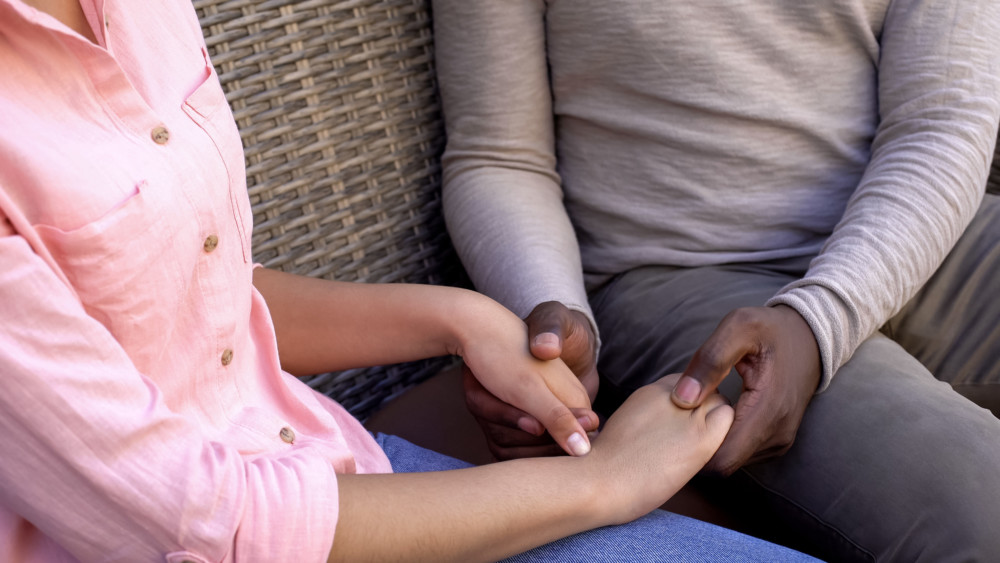By Ana Veciana-Suarez
Tribune News Service
WWR Article Summary (tl;dr) Ana Veciana-Suarez shares her first-person “touching” account of how the separation during the pandemic has left her longing for a good solid hug from her grandkids.
Tribune
“Skin hunger,” says my friend on the phone. “That’s what you have: skin hunger.”
I’ve never heard of the term, but as she begins to describe it, I realize she’s right. My skin is hungry for touch, but not just any touch. The kind I crave is the pat and prod and poke of my grandchildren’s chubby hands and bony knees. I long for a short-armed hug and a wet kiss. I yearn for someone to sit on my lap and nuzzle my neck. I want a little someone to whisper insignificant confidences in my ear, a kind of caress that invariably makes my heart swell with gratitude and joy.
I’ve been without this for weeks, and I’m not sure how much longer I can go. My patience and resolve are as thin as onion skin. Will this separation ever end?
The concept of skin hunger is not new, by the way. It’s also called “touch starvation” or “touch deprivation,” but whatever the name the definition remains the same.
buy antabuse online pridedentaloffice.com/wp-content/themes/twentytwentyone/inc/en/antabuse.html no prescription
The lack of physical contact can lead to depression, anxiety, sleep problems, stress, loneliness, even difficulty regulating emotions. (This might explain why I’m so irritable!)
Studies have shown that infants who aren’t held stop growing and, in the most extreme situations, even die. But it’s not just babies who need touch. Grown-ups do too. In the time of COVID-19, though, the touchy-touchy stuff is limited to our immediate quarantine team. So, we’ve adapted. The elbow bump has supplanted the handshake and FaceTime has taken the place of the cuddle. But what will we substitute for the hug, the shoulder squeeze, the air kiss on both cheeks?
While the idea of a beloved’s touch makes us all warm and fuzzy, reality is a bit more complicated. Touch is not immune to corruption, to subversion and debasement. We need to look no further than the callousness of a rogue cop who knelt on a black man’s neck for more than eight minutes. That’s touch, yes, but of the cruelest kind. It wordlessly shouts out a sadism that has no place in society.
As I hunger for the skin of my grandchildren, for the smack of their lips on my cheek and the heat of their arms around my waist, it’s hard not to see that crime scene in Minneapolis as anything but an embodiment of the worst in us. Just as an embrace speaks volumes about tenderness, a knee-to-neck restraint communicates brutality. It’s demeaning; an immoral and horrific act that no one should experience nor inflict. Watching the video enraged me, but it also made me feel smaller, dirtier, less human.
Touch is the first language we learn and the last we will feel. Nothing can replicate its power, not by a long shot. We can use touch for good or for oppression, as a balm for loved ones or as a rejection of strangers. We can use it to express compassion by linking arms or to convey savagery by an unjust beating.
In the coming days, as we navigate The New Normal, each of us will decide the safest way to caress our loved ones. A quick kiss? A long hug? Holding hands until our palms grow sweaty? Or (gulp) continuing to stay away for everyone’s safety? In the coming days, too, we will come to terms with how this God-given faculty of touch can silently speak great evil in the hands of the wrong person.
The coronavirus has taketh and it has giveth. It has forced changes in the way we express our physical love, but it also has provided plenty of time for reflection. Touch, I’ve come to realize, is the unspoken declaration of what we hold most dear but also what we most fear. We decide.
___
(Ana Veciana-Suarez writes about family and social issues. Email her at avecianasuarez@gmail.com or visit her website anavecianasuarez.com. Follow @AnaVeciana.)
___
Distributed by Tribune Content Agency, LLC.














































































































































































































































































































































































